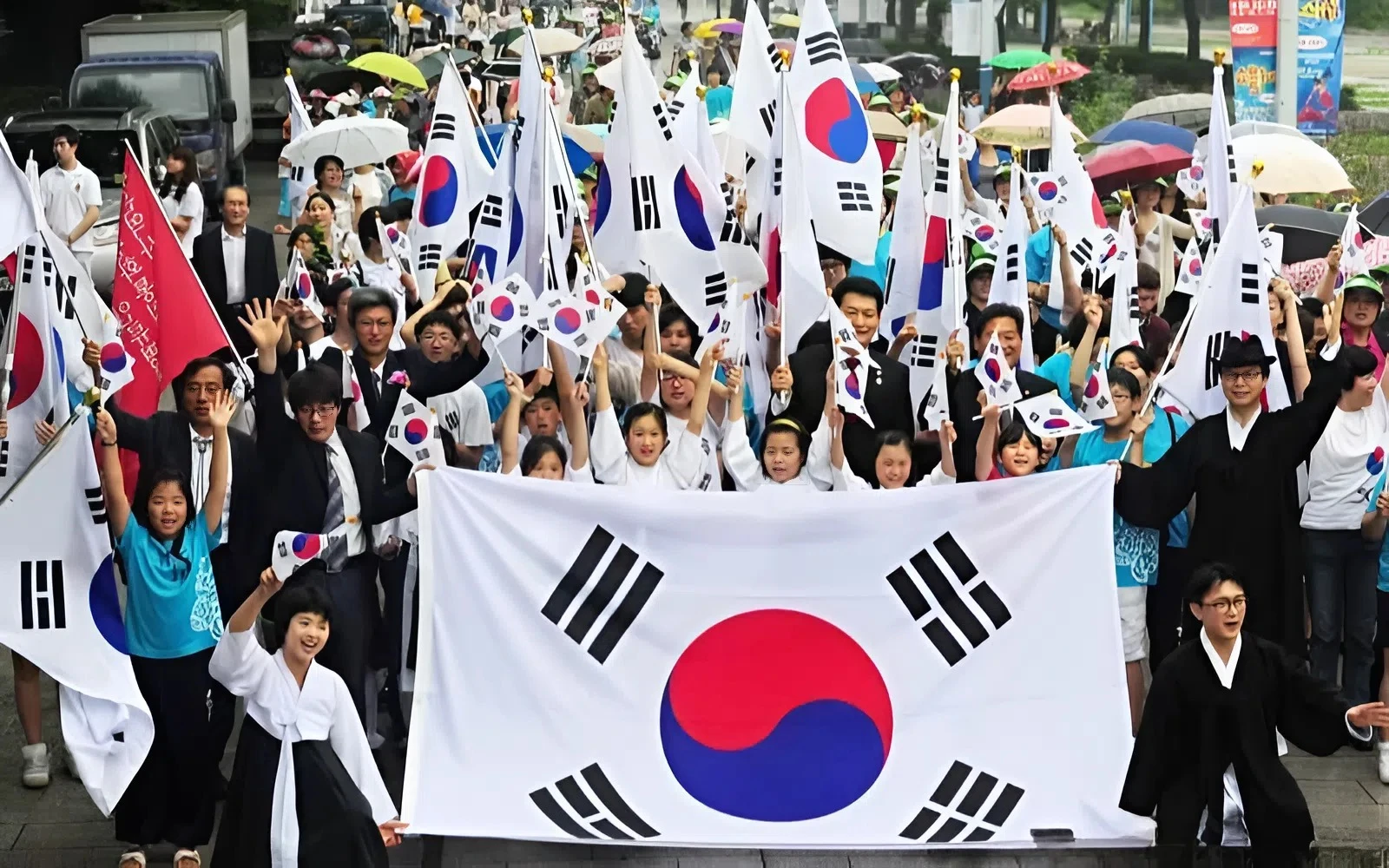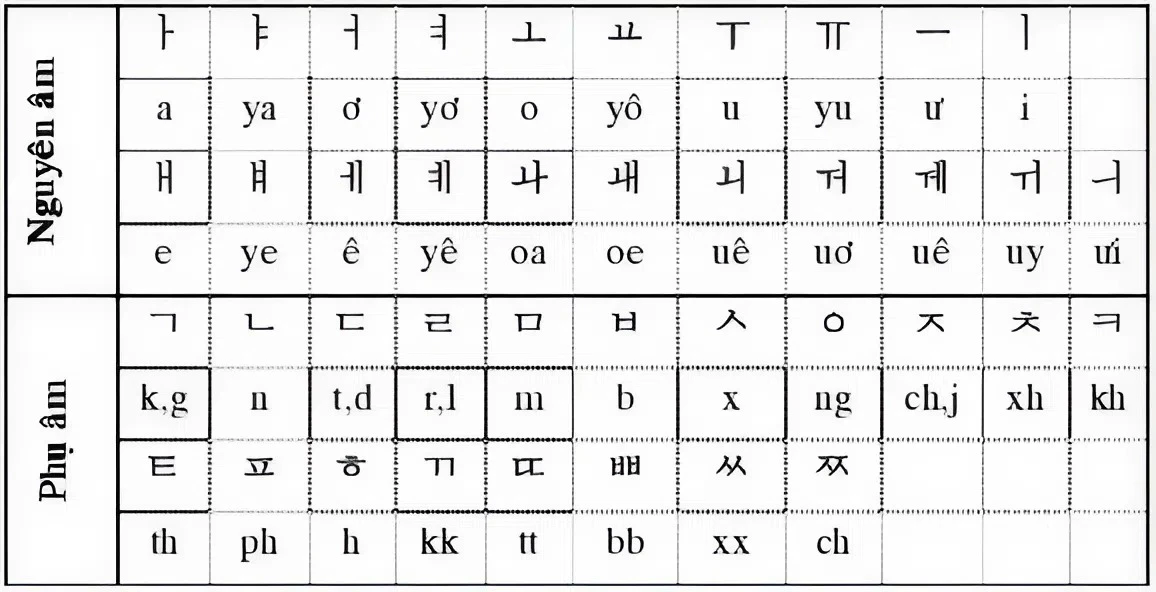


World Cultural Exchange: South Korea - The land of kimchi
This August, continuing the spirit of comprehensive human resource development #Innovation4Culture, InterLOG invites you on a journey to explore the beauty of the Land of Kimchi - where tradition blends seamlessly with modernity, creating a powerful global attraction.
The Meaning of Korea’s National Liberation Day
In Korea, National Liberation Day is called Gwangbokjeol (광복절) - a name with layered meanings. In Korean, “jeol” (절) simply means “festival” or “holiday,” while “Gwangbok” (광복) combines “gwang” - light, and “bok” - restoration. Literally translated, it means “the day of regaining the light.”
However, for the Korean people, “light” here is not merely a metaphor. It recalls the dark period of foreign occupation and symbolizes hope, the longing to break free from darkness and reclaim freedom.

“Gwangbok” is more than just a word; it is a declaration of resilience, a determination to restore sovereignty and rebuild independence. It embodies the spirit of self-reliance, national pride, and the aspiration to rise again – to live once more in the light of freedom.
Unique Cultural Features of Korea
Over thousands of years of history, shaped by influences from many cultures, Korea has created a rich and distinctive cultural heritage, spanning from tradition to modernity. These values not only reflect national identity but also spark global curiosity and admiration. Let’s explore with InterLOG the unique cultural features found only in Korea.
The Korean Wave (Hallyu) - The Power Guiding Korea to the World
For more than two decades, Hallyu (한류) - the “Korean Wave” - has become a global cultural phenomenon. From the dynamic K-pop beats of BIGBANG, BLACKPINK, and BTS, to touching K-dramas like Descendants of the Sun and Crash Landing on You, Hallyu brings joy and entertainment while opening the door for the world to better understand Korean people, values, and lifestyle.
Initially, Hallyu was not an official government cultural strategy. Yet, after realizing the powerful influence of music, film, and entertainment, Korea deliberately transformed Hallyu into a cultural “bridge,” linking national image with its creative products and values. This is a vivid demonstration of the power of “soft diplomacy” - connecting the world through art.
.png)
Cuisine - Flavors You Can’t Forget
Cuisine is the soul of culture. Kimchi, the world-famous fermented dish, is recognized by UNESCO as intangible cultural heritage. Alongside it are Bibimbap, Bulgogi, Tteokbokki, Gimbap, Naengmyeon (cold noodles), and Soju - each dish conveying messages of balance, health, and community spirit.
In traditional meals, kimchi is always served with various side dishes. Koreans use chopsticks for noodles, spoons for rice, and pouring drinks follows a ritual that demonstrates respect and courtesy - hallmarks of daily cultural interaction.
Hanbok - Timeless Beauty
If Vietnam has the Áo dài and Japan the Kimono, Korea has the Hanbok - traditional attire with flowing designs, vibrant colors, and diverse fabrics. Hanbok is worn not only during festivals, weddings, and important events but also embodies cultural values, elegance, and national pride. Each color, stitch, and pattern carries its own meaning - from luck and happiness to health and longevity.
.png)
Hangeul - The Language of Identity
Hangeul is scientifically designed with simple vowels and consonants, making it easy to learn and write. It is one of the few modern alphabets in the world intentionally created to eliminate illiteracy and promote education.

Every year on October 9, Koreans celebrate Hangeul Day, honoring King Sejong’s contribution and the cultural value of this script. Hangeul is not only a communication tool but also a symbol of creativity and national identity - much like the “light” celebrated on Gwangbokjeol.
Work Culture - Discipline and Collective Spirit
Koreans pay great attention to gestures and attitudes. Bowing, friendly smiles, and humility are highly valued. In business settings, exchanging business cards and following etiquette reflect respect for partners and collective awareness.
Korea’s work culture emphasizes discipline, responsibility, and teamwork, fostering efficiency while upholding human values. This is a valuable lesson for any organization striving for sustainable growth.
Experience Korea with FAN-tastic Danseo at InterLOG
No need to travel far - you can still “touch” Korean culture through the “FAN-tastic Danseon” Contest at InterLOG. Each team will design and decorate a Danseon fan - a traditional Korean art form. More than just a creative playground, this is an opportunity for members to explore cultural essence, strengthen bonds, and embrace InterLOG’s vision of sustainable development.


InterLOGers unleash their creativity to craft the best designs. 
Members brainstorm and exchange ideas for their projects. %20(1).png)
The final results showcase hours of collaboration and dedication.
At InterLOG, experiencing Korean culture goes beyond knowledge. It nurtures creativity, collaboration, and respect for diversity – laying the foundation for sustainable growth and global connection.


